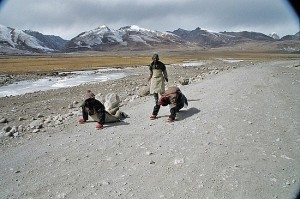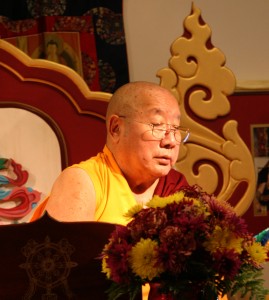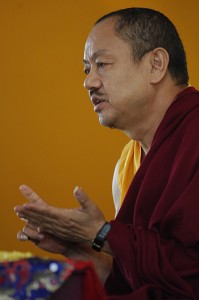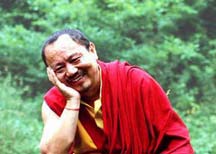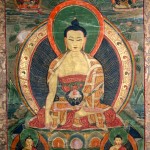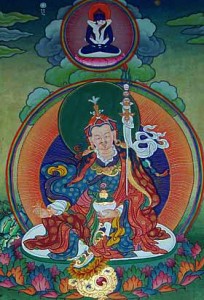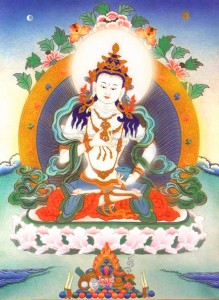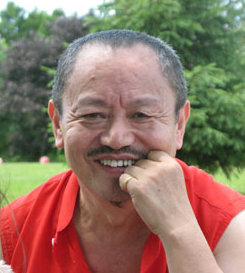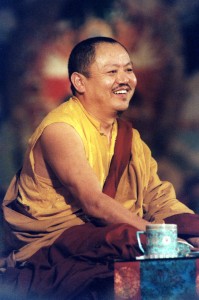The following is an excerpt from a teaching by Khenchen Tsewang Gyatso on Ngondro given at Kunzang Palyul Choling:
Today, from The Great Perfection, Buddha in the Palm of the Hand, we are going through the Four Thoughts Which Turn the Mind, Refuge and Bodhicitta. There are many practitioners in Tibet who only accumulate prostrations and chant taking refuge in the Buddha, Dharma and Sangha who achieve purification and have some kind of experience. There are not just one or two, but thousands. Really! Tibetan lay people who could not enter monastic life or those who could not study like you guys. Here lamas come and give teachings and you all are very smart and want to understand everything step by step and you want to make everything clear. In Tibet, they have very strong devotion. When a lama is giving teachings, they all rush up there and listen. They are not so attentive, but they have so much devotion. Whenever a ngöndro teaching is given on prostrations, they have no doubt. They will do that accumulation. They will not consider whether it makes sense or not. They just practice it, thinking, “This must be something of benefit, so I have to do it.” They do it continuously. Even when they are working in the kitchen or tending the cows, they continue chanting “Lama la kyab su chi-o, Sangye la kyab su chi-o, Chö la kyab su chi-o, Gendun la kyab su chi-o,” like this. They are constantly chanting, and they don’t think, “Lama la kyab su chi-o, why do I have to say this?” They really don’t have that kind of thought. “Why do I have to take refuge in Buddha? Who is Buddha? What is Dharma? What is Sangha? Why do I have to do that?” They really don’t have that kind of thought. They just go on constantly chanting. And they really do have some kind of purification, and they could have many different kinds of experiences, dreams, clear understanding. I think it is due to the culture that they have that kind of belief and constantly do that. Nobody knows what kind of practice a very ordinary appearing human is doing, just that every time people see him he is chanting, “Lama la kyab su chio, Sangye la kyab su chio…” “I take refuge in the Lama, I take refuge in the Buddha…” People think he is just ignorant. But when death comes, he sits calmly with a smile and rainbows appear. Then people realize that this was a great practitioner. We didn’t know that.
